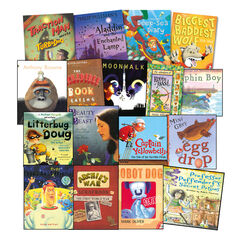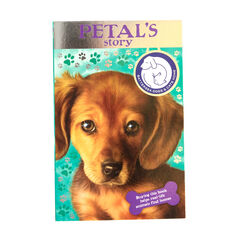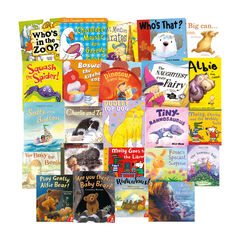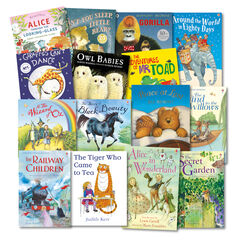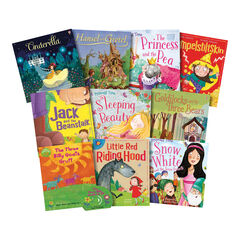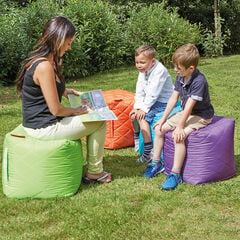In this blog, you will find lots of creative school literacy club ideas that will engage children and boost reading and writing skills.
Why Start a School Literacy Club?
With such a busy curriculum, it can often be challenging to find opportunities for children to write freely and imaginatively, as well as to enjoy exploring books and listening to stories. Starting a school literacy club is an effective way to make more time in the school day for fostering a love of reading and writing. and allowing children to immerse themselves in the world of literature.
Here are some school literacy club ideas to get you inspired.
Book Club Ideas
Make your Book Club area a special place. As well as providing a wide range of books for the children to browse and enjoy, think about the environment where the children will be experiencing books. Will you have comfortable seats for the children to use? Will it take place outside in a special reading shed, den or gazebo? If you have one, will it take place in the school library? Or will the location change from one week to the next? Whatever you choose, make it as relaxing and comfortable as possible.
There are so many book themed activities you could do. Here are a few you could try:
- Read a different book each week and discuss what the children think about it.
- Read books from the school library or classrooms and write book reviews.
- Invite children to bring in their own favourite books to share or do a book swap.
- Focus on a different book theme each week – a particular author, books about the sea, books about dinosaurs etc.
- Get the children involved in organising second-hand book sales to raise funds for the school.
- Ask the children to plan activities for book themed events, such as ‘World Book Day’.
Read our blog ‘13 ideas to get children reading!‘ blog and our other Reading blogs for more ideas on books, reading activities and setting up a reading area.
Story-Telling Club
Start a story-telling club where children listen to stories being read by adults (include school staff and members of the community) and other children. Here are some story-telling club ideas:
- Use puppets and get the children to practise telling stories through puppetry.
- Use musical instruments to add sound effects to stories.
- Encourage children to write and share their own stories.
- Ask children to tell a story orally based on a given theme.
- Give out story telling cards and ask the children to order them to create a story. Then practise re-ordering the cards to see how it alters the narrative.
- Invite different adults and members of the community to share stories with the children.
Poetry Club Ideas

Poetry is so much fun and a real expressive art from. However, it can often be a neglected part of literacy so why not start a poetry club to help raise its profile. Here are a few ideas to get you started:
- Simply share and enjoy a wide range of poems together.
- Write poems individually and as a group. Try to use a different stimulus each week, such as a picture, an object or an event.
- Pracitse performing other people’s poetry, as well as ones the children write.
- Invite local poets in to deliver workshops.
- Encourage children to enter poetry competitions.
- Help children to plan some activities for special events such as ‘National Poetry Day’ and ‘World Poetry Day’.
Drama Club Ideas

Develop children’s confidence, creativity and oracy skills by creating a drama club. Try these popular drama activities:
- Play games that promote confidence and working together.
- Practise telling stories to build confidence and develop audience engagement skills.
- Make up stories, move to music and play games to develop improvisation skills.
- Practise voice projection by playing games and doing vocal exercises.
- Perform short sketches to practise acting in role.
- Bring in local theatre professionals to run workshops.
- Work towards putting on a school play or show.
- Get children involved in costume designing, stage lighting, sound effects and promoting the performance.
A quick internet search will generate a range of fun and exciting drama games that develop a range of skills.
Writers Club
Encourage young writers by setting up a club that allows children to really get their creative juices flowing. There are lots of activities you could do. Here are a few to get you started:
- Provide children with a stimulus (such as a picture, an interesting object or title) and ask them to write about it.
- Ask the children to provide ideas for writing stimuluses.
- Challenge children to write about something using a set number of words.
- Provide the children with themes to write about. Or ask them to write in role (try something abstract like a pebble on a beach or a clock on a train station wall).
- Try writing play scripts and ask the children to use puppets to present their plays to others.
- Get budding reporters to contribute to the school newsletter, writing articles about recent school events and interviewing children, teachers, parents and special school visitors.
- Invite children to share their literal creations during special events, such as ‘National Storytelling Week’ or ‘National Writing Day’.
- Encourage the children to enter writing competitions, such as ‘BBC 500 words short story competition’, using the club to share their ideas and stories with other pupils.
Spelling Club
Spelling words correctly can be quite challenging for some children. However, there are lots of activities you can do to make this area of literacy fun and engaging. Here are a few game ideas to get you started:
- Hangman – a classic game where it’s easy to change the difficulty level.
- Bingo – a great game for practising statutory spellings and commonly misspelt words.
- Boggle – a brilliant game for recognising and exploring letter patterns to make as many words as possible.
- Scrabble – a classic game that’s great for developing pattern recognition, spelling accuracy and building vocabulary.
- Bananagrams – a fun, face-paced game. Players play at the same time and race to use letter tiles to spell words. The level of difficulty is also easy to change.
- Wordsearches and Crosswords – Create your own or use ready-made ones. Play against the clock to see who can complete their wordsearch/crossword first. Or play beat the teacher – who can complete the wordsearch/crossword before the teacher?
- CVC Spelling Games – a set of CVC spelling board games that are designed to reinforce phonetic awareness, target early word building and provide an inclusive learning experience.
And Finally
Literacy clubs really are a great opportunity for giving children the time and freedom to write creatively, explore books, express themselves through performance and enhance their literacy skills
We hope that this blog has given you lots of fun literacy club ideas for setting up your own club.
Written by Kelly Lawrence
Kelly has 15 years of experience working as a Primary School Teacher, teaching children across both Key Stage 1 and 2, and leading English across a large primary school.












